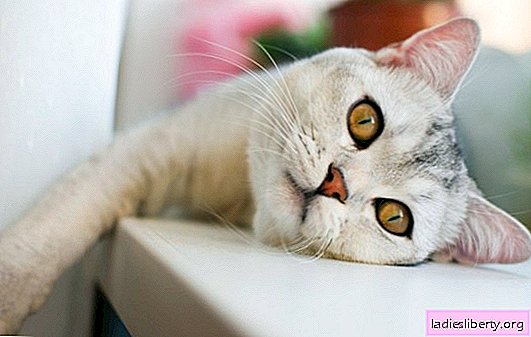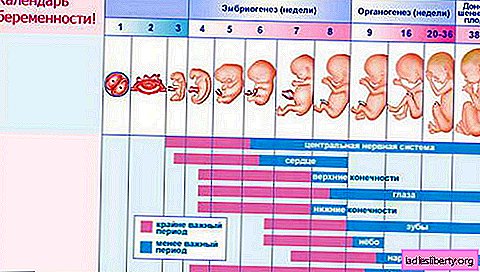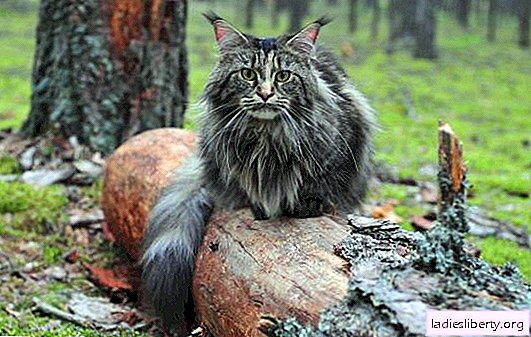
Cats can be considered one of the most versatile and curious pets, they are literally interested in everything that comes in their way. Therefore, sometimes it happens that you have to face poisoning in a cat. This short review will focus on causes that can lead to such sad consequences, as well as symptoms and ways to effectively get rid of this dangerous ailment.
Cat poisoning is dangerous with subsequent complications. Very often, these animals after consuming toxic substances can get chronic hepatitis. And this is a rather serious disease, which almost until the end of the animal’s life requires constant monitoring by a specialist - a veterinarian and maintenance therapy.
What can be the types of poisoning in cats
Poison can enter the body of a pet in only two ways. Non-food type of poisoning can occur as a result of inhalation of vapors of any substances or toxic gases. But with such poisoning, toxic substances can enter the body not only through the lungs, but also penetrate through the mucous membranes and skin integuments.
Food poisoning in a cat can be caused by poisons that end up in the body at the same time as food or water. At the same time, toxins gradually saturate the blood, causing irreversible changes in many vital organs.
About the causes of poisoning in cats
Sometimes the cause of severe poisoning can be extremely commonplace. It's about eating spoiled cat food. After all, most lovers of these pets, as a rule, leave food for them all day or at night. It is possible that, especially in hot weather, a cat’s dish can easily deteriorate and cause severe poisoning. Another case is the fault of the animal itself. If the cat is constantly on the street, then it probably can happen that she does not disdain to feast on something tasty from the trash can, trash can, or just pick up something on the street.
Cats that are active hunters and constantly walk in basements or other habitats of rodents can be threatened with poisoning by rat poison. In this case, the animal can be poisoned both directly by the drug itself, and after eating a rodent that has previously consumed poison.
Unfortunately, cats are poisoned with household chemicals. It so happens that caring owners try very carefully to take care of the personal dishes of their pets and forget to rinse the detergent well. But then the cat will smell it, lick it or even bite it. The same goes for carelessly left bottles or bottles of household chemicals.
It happens that poisoning in a cat happens due to the use of any medications. Sometimes the "caring" owners, noting the slightest ailment, make the cat a diagnosis and begin to stuff it with medicines on their own. As a result of an overdose, the animal may suffer from poisoning. Therefore, you can not prescribe drugs to animals at your own peril and risk, only a veterinarian should do this.
Cats are not always indifferent to the surrounding flora, which can be fraught with various dangers, both at home and in nature. But there are even indoor plants that are unsafe for cats. Therefore, before you start your favorite plant in the house, you should find out how much it can pose a threat to the pet.
There are many other sources that can cause severe poisoning in cats. These include:
• means to combat cat parasites, including collars;
• various poisonous insects;
•paints and varnishes;
• fertilizers.
Classic symptoms of poisoning in cats
In most cases, a sick animal begins to salivate, it develops diarrhea and vomiting. If the poison provoked damage to the nervous system, then there are signs of paralysis and very frequent breathing.
Separately, it is worth mentioning the symptoms that manifest themselves in the case of rat poison poisoning. In cats, the abdomen may swell, the animal is sensitive to touching it. The mucous membranes are extremely pale. Poisoning is accompanied by bloody diarrhea and vomiting, and the animal itself is very weak and behaves passively.
How to treat cat poisoning
To decide on treatment methods, it is important to know the cause of the intoxication. If the poisoning is non-food, then there can be only one treatment - this is the use of an antidote. Moreover, it should be administered exclusively by a specialist - a veterinarian, since only he can correctly determine the drug and dosage.
Therapy for food poisoning begins with gastric lavage. This procedure can only be done in a veterinary clinic, as special equipment will be required. Before washing, the animal must be given crushed coal, which sorb toxins. If possible, then you should induce vomiting in the cat. To do this, prepare a solution of one tablespoon of salt in a glass of warm water and forcefully pour it into the mouth.
To neutralize poisonous substances, one should start using activated carbon at the rate of one tablet per 10 kg of live weight.
For severely weakened animals, intravenous glucose infusions may be required. With noticeable respiratory disorders, the introduction of atropine or its analogues is necessary. To quickly rid the body of poison, a cat is prescribed a diuretic.
If the poisoning is of non-food origin, then they act depending on the cause. When insect bites, the first thing they do is apply ice to the bite site, then the poison will be more slowly absorbed into the blood. After this, you should immediately go to the veterinarian.
If the cat is poisoned through the skin, then it should be immediately washed, and the more profuse, the better. Self-medication is extremely dangerous here and if you need an antidote, then you should immediately go to a professional doctor.
If the cat has been poisoned through the respiratory system, it should be immediately taken out to fresh air, induce vomiting and drink with a laxative.











